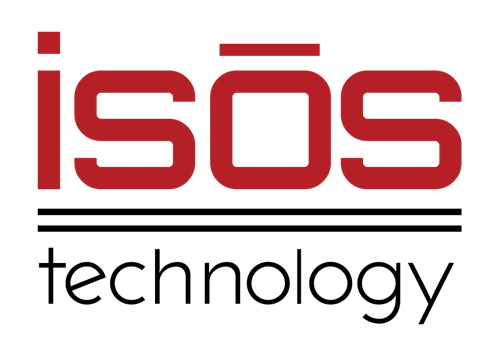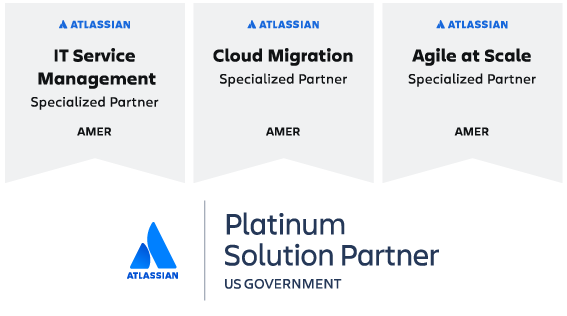 Choosing between Atlassian and GitLab is a big decision, and understanding which platform best fits your team's goals and workflows is key to setting your organization up for success.
Choosing between Atlassian and GitLab is a big decision, and understanding which platform best fits your team's goals and workflows is key to setting your organization up for success.
Both platforms offer unique strengths that cater to different needs, from seamless collaboration to agile development processes. Understanding the nuances of each tool and how they fit into your team's dynamics will be pivotal in making an informed choice.
Key takeaways
- Consider team collaboration needs and preferences.
- Evaluate scalability for current and future projects.
- Compare user interfaces for ease of use.
- Assess community support and available resources.
- Align specific workflow requirements with tool capabilities.
Atlassian vs. Gitlab
Project management and collaboration tools play a pivotal role in Fortune 1000 companies, with Atlassian and GitLab emerging as standout platforms in this sector. These tools particularly cater to tech-savvy project management leads and IT department heads.
In this competitive landscape, agile software development and efficient software development tools are paramount. Atlassian and GitLab have risen to the challenge, offering inclusive solutions that streamline workflows and enhance team collaboration.
| Features | Atlassian | GitLab |
| Agile Development | Supports Agile methodologies with Jira Software | Agile capabilities with issue tracking in GitLab |
| Collaboration | Confluence enables seamless team collaboration | GitLab Wiki for collaborative documentation |
| Integration | Integrates with various tools like Bitbucket, Trello | Built-in CI/CD, integrates with Kubernetes |
These platforms provide robust project management capabilities and foster a culture of innovation and efficiency within organizations. For project management leads and IT department heads seeking cutting-edge solutions, Atlassian and GitLab stand out as top contenders in the software development tools domain.
The power of Atlassian in project management
Atlassian's strength in project management lies in its extensive toolchain, which includes Jira, Confluence, Bitbucket, Trello, and more. These tools are designed to effortlessly enhance workflow and collaboration.
The platform's flexibility allows you to tailor workflows to your team's needs, with numerous options and real-world examples.
Comprehensive toolchain for every need
By integrating tools like Jira, Confluence, Bitbucket, and Trello, Atlassian equips teams with a complete toolchain that streamlines workflow and enhances collaboration.
Here's how Atlassian's integrated tools work together to boost your team's productivity:
- Jira: Track tasks, issues, and projects in a unified platform, allowing easy monitoring and progress tracking.
- Confluence: Create and share documents, meeting notes, and project plans collaboratively, fostering knowledge sharing and transparency.
- Bitbucket: Manage code repositories, facilitate code reviews, and automate workflows, ensuring seamless development processes.
- Trello: Organize tasks visually on boards, assign responsibilities, and set deadlines, promoting task visibility and team alignment.
With these tools seamlessly integrated into your workflow, Atlassian provides a comprehensive solution that caters to the diverse needs of modern teams. It enables efficient project management and fosters a culture of collaboration and innovation.
Customizability and flexibility
Teams using Atlassian can easily customize their workflows through a range of flexible options and configurations to enhance productivity and meet specific needs. When comparing Atlassian vs. GitLab, Atlassian stands out for its extensive customizability and flexibility. This adaptability is essential for aligning project management processes with unique requirements in large organizations.
Atlassian offers various customization options, such as creating custom fields in Jira to track specialized information, configuring workflows in Bitbucket to match team processes, and tailoring Confluence spaces to reflect specific documentation needs.
For instance, a software development team can customize their Jira boards to include stages that align with their agile methodology, ensuring a seamless workflow from planning to deployment.
Enhancing team collaboration
Enhancing documentation and knowledge sharing is essential for fostering effective team collaboration within organizations utilizing Atlassian products. When it comes to enhancing team collaboration, Atlassian offers a robust set of tools that can significantly improve how teams work together:
- Confluence: Utilize Confluence, Atlassian's collaboration software, to create, share, and collaborate on documents, meeting notes, project plans, and more in one centralized location.
- Knowledge sharing: Encourage sharing by using Confluence to store valuable information, best practices, and essential resources to which team members can easily access and contribute.
- Real-time collaboration: Enable real-time collaboration through Confluence. This allows team members to work together simultaneously on documents and projects, fostering a more dynamic and efficient workflow.
- Case studies: Explore case studies of companies that have successfully improved team collaboration through Atlassian products like Confluence. These case studies showcase real-world examples of how these tools can transform teamwork and productivity.
Seamless integration with existing systems
Atlassian and Gitlab offer seamless integration with existing systems, making connecting popular tools like Slack, Microsoft Teams, and GitHub easy. These integrations enhance communication and streamline workflows, ultimately improving team collaboration.
Additionally, Atlassian's automation capabilities in Jira and Bitbucket help reduce manual effort and boost productivity within IT departments.
Connectivity with popular tools
Integrating Atlassian or Gitlab with popular tools like Slack, Microsoft Teams, and GitHub can significantly enhance your team's productivity and streamline communication workflows. Here's how these integrations can benefit your team:
- GitLab EE integration with Jira: Seamlessly link GitLab's Enterprise Edition with Jira to synchronize your development and project management activities and ensure a cohesive workflow.
- Enhanced collaboration with GitLab integration in Jira: Combine the power of GitLab within Jira to facilitate smoother code management, issue tracking, and project planning, fostering collaboration among team members.
- Efficient communication via Slack integration: Connect Slack with Atlassian or Gitlab to receive real-time updates, notifications, and alerts, keeping everyone in the loop without switching between platforms.
- Streamlined code management with GitHub integration: Integrate GitHub with your chosen tool to simplify code reviews, version control, and repository management and promote efficient development processes.
These integrations provide a seamless experience, enabling better communication, enhanced collaboration, and streamlined workflows for your team.
Automating processes with Atlassian
Automate your team's processes within Jira and Bitbucket to streamline tasks, reduce manual effort, and boost productivity for IT departments by seamlessly integrating with existing systems.
When comparing Atlassian Bitbucket vs Gitlab, Atlassian stands out for its robust automation capabilities. By leveraging Jira's automation features, you can create custom rules to automate repetitive tasks, notifications, and process progression. This functionality saves time and minimizes human error, enhancing the overall efficiency of your IT processes.
Bitbucket further complements this by allowing you to automate code deployment, testing, and integration through pipelines. The seamless integration with existing systems guarantees that your team can effortlessly incorporate automation into their workflows without disruptions.
With Atlassian, you can empower your IT department to focus on strategic initiatives by reducing the burden of manual work, ultimately driving higher levels of productivity and innovation.
Scalability for large organizations
When considering scalability for large organizations, Atlassian stands out with tailored solutions to meet enterprise needs.
Fortune 1000 companies have successfully leveraged Atlassian's capabilities to handle vast user bases and complex projects.
Additionally, Atlassian's commitment to enhanced security and compliance features guarantees that enterprise-level requirements are met with certifications and robust security practices in place.
Tailored solutions for enterprise needs
Handling large user bases and complex projects effortlessly, Atlassian's robust capabilities cater to the needs of Fortune 1000 companies seeking scalable solutions for their enterprise operations.
When it comes to enterprise agile planning and comparing Gitlab vs Jira, Atlassian stands out with its tailored offerings for large organizations:
- Scalable infrastructure: Atlassian provides a robust infrastructure that can easily handle the demands of Fortune 1000 companies, guaranteeing smooth operations even with many users and projects.
- Customizable workflows: Fortune 1000 companies leverage Atlassian's customizable workflows to seamlessly adapt to their specific project requirements and organizational structures.
- Integration capabilities: Atlassian offers extensive integration options, allowing Fortune 1000 companies to connect various tools and systems for a cohesive workflow experience.
- Enterprise support: With dedicated enterprise support, Atlassian ensures that Fortune 1000 companies receive prompt assistance and tailored solutions to address their unique challenges effectively.
Enhanced security and compliance features
Atlassian's dedication to security and data compliance is exemplified through its robust certifications and practices, which guarantee enterprise-level security for large organizations. When it comes to security and compliance, Atlassian goes above and beyond to ensure that your data is protected at the highest standards.
With a focus on enterprise-level security, Atlassian offers a range of features and certifications that give you peace of mind when handling sensitive information. From ISO 27001 certification to SOC 2 compliance, Atlassian's commitment to security is unwavering.
User-centric design and accessibility
Atlassian excels in user-centric design, featuring an intuitive interface that simplifies your team's workflow.
With clean layouts and minimal clutter, using Atlassian tools is a breeze for new users.
Moreover, their robust support system and active community guarantee you always have resources at your fingertips for a seamless experience.
Intuitive user interface
With a focus on user-centric design and accessibility, Atlassian tools' clean and intuitive interface streamlines your team's onboarding experience, minimizing the learning curve for new users.
Here's why Atlassian's interface stands out:
- Sleek navigation: Easily move between projects, tasks, and updates.
- Visual dashboards: Instantly grasp project progress and individual contributions.
- Drag-and-drop functionality: Effortlessly organize tasks and priorities.
- Customizable workflows: Tailor the interface to match your team's unique processes.
Users rave about Atlassian's interface, with one user stating, 'The simplicity of Atlassian tools made my team's onboarding smooth and efficient.'
The intuitive design of Atlassian tools enhances productivity and fosters a positive user experience, ensuring that your team can focus on their work rather than struggling with the platform.
Support and community resources
Utilize the robust support system and community resources provided by Atlassian to enhance your team's experience and troubleshoot any issues efficiently. Atlassian offers many support resources, including extensive documentation, forums, and training materials. The documentation covers diverse topics, from essential user guides to advanced troubleshooting solutions, ensuring you can quickly find the answers you need.
Additionally, the forums provide a platform for users to share best practices, tips, and solutions to common issues, fostering a collaborative environment for problem-solving.
The value of the sizeable Atlassian user community can't be overstated. With a vast network of users worldwide, you can tap into a wealth of knowledge and experience to help address any challenges you may encounter. Whether you're looking for technical support or seeking advice on optimizing your workflow, the Atlassian user community is an invaluable resource.
Comparative advantages Of GitLab
Atlassian's Jira offers extensive project tracking and reporting features that outshine GitLab, providing in-depth insights and real-time data for efficient project management.
Additionally, Atlassian's tools have a broader organizational focus, catering to various departments like marketing and HR, unlike GitLab, which is more development-centric.
Enhanced project tracking and reporting
For enhanced project tracking and reporting capabilities that may exceed GitLab's offerings, Jira provides advanced features and real-time insights that can significantly benefit your team.
Here are four reasons why Jira stands out in project management:
- Customizable workflows: Jira allows you to tailor workflows to match your team's unique processes, providing granular control over project stages and progress.
- Rich reporting: With Jira, you can access a wide array of pre-built reports or create custom reports to track project advancement, identify bottlenecks, and make informed decisions.
- Real-time collaboration: Jira fosters collaboration with real-time updates, mentions, and notifications, keeping everyone on the same page and boosting team productivity.
- Integration capabilities: Jira seamlessly integrates with a vast ecosystem of tools and plugins, enabling you to centralize project management and streamline workflows across different platforms.
Broader focus beyond development
Jira's broader organizational focus extends beyond development, catering to various departments and use cases, distinguishing itself from GitLab's development-centric approach. Atlassian's suite of tools, including Jira Software, Jira Service Management, and Confluence, provides solutions for various business functions beyond the software development lifecycle.
Jira's enterprise agile planning tools enable streamlined campaign management, task tracking, and collaboration for marketing teams. HR departments leverage Jira for recruitment processes, onboarding workflows, and performance evaluations. The flexibility of Jira's customizable workflows and integrations allows seamless adaptation to diverse organizational needs.
In contrast, GitLab primarily focuses on software development, lacking the extensive features required for all-encompassing enterprise-wide planning and execution. While GitLab excels in aspects of the development process, Atlassian's tools offer a more holistic approach, supporting cross-functional collaboration and enhancing departmental efficiency.
Organizations looking for a versatile solution that caters to the full spectrum of organizational requirements will find Atlassian's tools valuable.
Atlassian vs. GitLab final thoughts
Discover Atlassian's extensive benefits for efficient project management and seamless collaboration within your team. By choosing Atlassian over GitLab, you can access Jira's robust project tracking capabilities, Confluence's centralized documentation features, and Bitbucket's reliable version control system. These tools work together seamlessly, enhancing productivity and promoting clear communication among team members.
Sign up to receive more great content
Learn more about Atlassian and how Isos can help by signing up to receive our latest blogs, eBooks, whitepapers and more.














